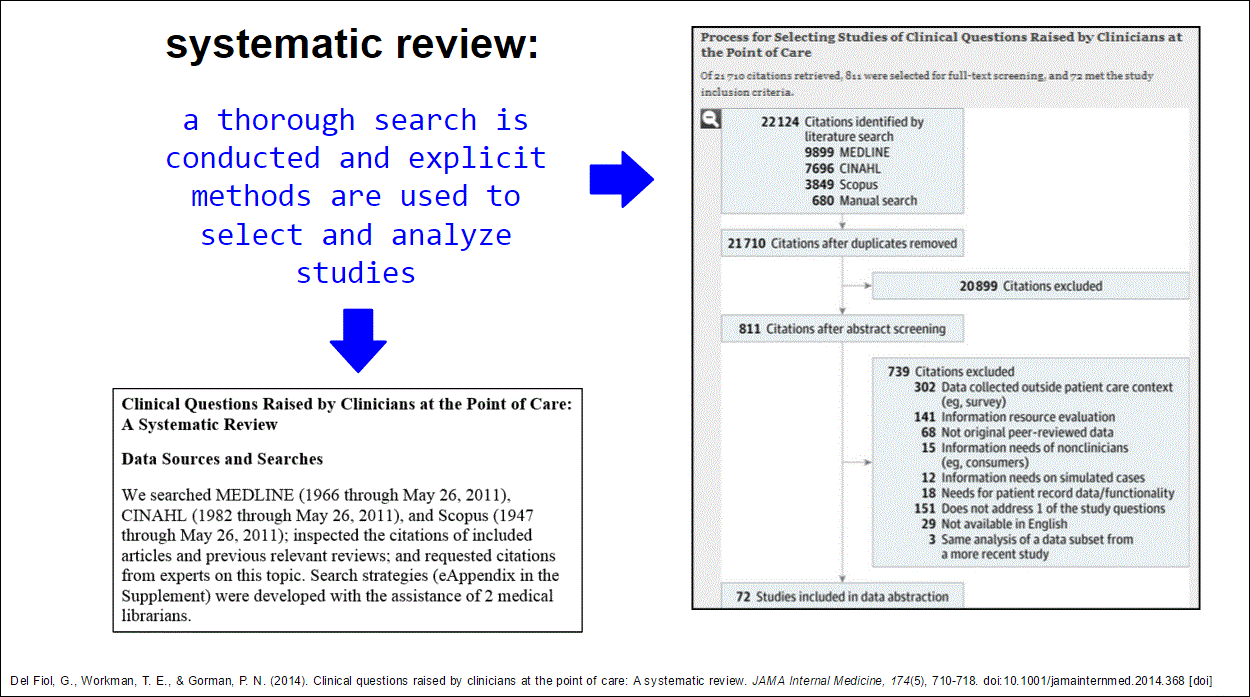
A literature review provides an overview of what's been written about a specific topic. There are many different types of literature reviews. They vary in comprehensiveness, types of study included, and purpose. The other pages in this guide will cover some basic steps to consider when conducting a traditional health sciences literature review. See below for a quick look at some of the more popular types of literature reviews.
Thanks to the Virginia Commonwealth University libraries for the contents of this guide.
 |
Traditional (Narrative) Literature ReviewA traditional (narrative) literature review provides a quick overview of current studies. It helps explain why your study is important in the context of the literature and can also help you identify areas that need further research. The rest of this guide will cover some basic steps to consider when conducting a traditional literature review. |
 |
Integrative Literature ReviewIntegrative reviews "synthesize findings from different approaches, like experimental and non-experimental studies" (Whittemore & Knafl, 2005). This approach allows for the integration of qualitative studies with quantitative studies. They may or may not be systematic reviews. |
 |
Systematic ReviewSystematic reviews synthesize high-quality empirical information to answer a given research question (The Cochrane Collaboration, n.d.). Conducting a systematic review involves following rigorous, predefined protocols that "minimise bias and ensure transparency" (Glanville & McCool, n.d.). See our Systematic Review Toolbox and Rayyan guides for more information on what they are and how to conduct one. |
 |
Meta-analysisMeta-analyses are "the statistical integration of separate studies" (Egger & Smith, 1997). They involve identifying similar studies and pooling their data to obtain a more accurate estimate of true effect size. A systematic review can include a meta-analysis. |
 |
Scoping ReviewA scoping review involves a broad research question that explores the current evidence base (Armstrong, Hall, Doyle, & Waters, 2011). It can help inform areas that are appropriate for a systematic review. |